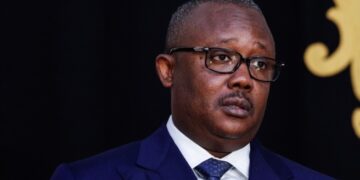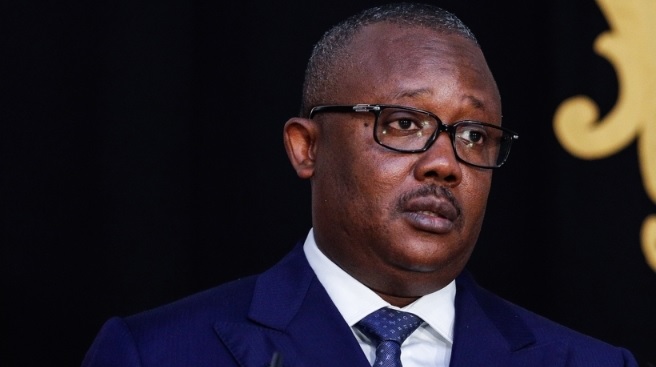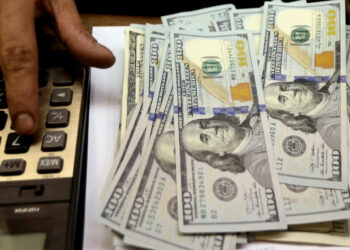By John Ikani
At least one person is said to have been killed in the capital of the West African state of Guinea-Bissau amid fears of a coup attempt.
Gunfire erupted near a government building in Bissau where President Umaro Cissoko Embalo was thought to be attending a Cabinet meeting.
The whereabouts of the President and Prime Minister are unclear.
Videos of armed men with automatic rifles and rocket-propelled grenades were shared on social media, and the state broadcaster reported that “invaders” were holding government officials.
People were seen fleeing the area, the local markets were closed and banks shut their doors, while military vehicles laden with troops drove through the streets, according to AFP news agency.
Embaló, a former Army General was declared the winner of the 2020 election, although the results were contested by former PM Domingos Simões Pereira.
The President then started forming a new government with support from the military while a Supreme Court election challenge was still pending.
Embalo’s tenure has not been smooth sailing. It took almost four months after the disputed presidential election results of 29 December 2019 for ECOWAS to announce on 22 April that it recognised Embalo’s election, while calling for the nomination of a new Prime Minister.
Meanwhile, the West African regional bloc ECOWAS condemned what it described as an attempted coup in Guinea-Bissau, which has a history of political instability.
“ECOWAS is following with great concern the evolution of the situation in Guinea-Bissau…where military gunfire is taking place around the government palace,” the organisation said.
“ECOWAS condemns this attempted coup and holds the military responsible for the safety of President Umaro Sissoco Embalo and members of his government.”
The small nation of about 1.5 million people has long been beset by corruption and drug trafficking. In the 2000s, it became known as a transit point for cocaine between Latin America and Europe as traffickers profited from corruption and weak law enforcement.
It has suffered four military putsches since gaining independence in 1974, most recently in 2012.
Collectively, West Africa has had a series of coups in the last 18 months. Emboldened by popular discontent, militaries in Mali, Guinea and Burkina Faso have seized power, reversing democratic gains that had led to the region shedding its tag as Africa’s “coup belt”.



































